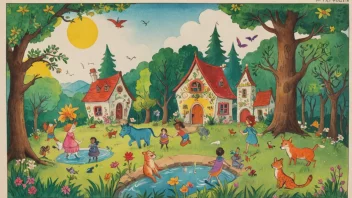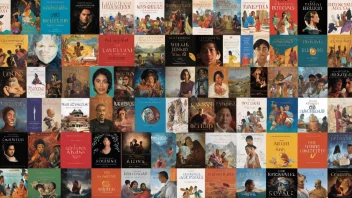Mentorship is a powerful theme in literature that often shapes the journey of characters, influencing their growth, decisions, and moral compass. Throughout various genres, mentors serve as guiding figures, providing wisdom, support, and sometimes tough love, which can significantly affect a character's development. In this article, we'll explore some frequently asked questions about the role of mentorship in character growth within fictional narratives.
What is the significance of mentorship in fiction?
Mentorship in fiction serves as a crucial element that helps to mold character identities and plotlines. Mentors often embody wisdom and experience, providing guidance that propels characters toward their goals. This relationship not only facilitates personal growth but also helps to highlight themes of trust, learning, and the challenges of life. As characters face obstacles, their mentors can offer insights that lead to self-discovery and transformation.
Can you provide examples of mentorship in classic literature?
Certainly! Classic literature is rich with mentorship examples:
- Atticus Finch and Scout Finch in To Kill a Mockingbird - Atticus serves as a moral guide for Scout, teaching her about empathy and justice.
- Gandalf and Frodo in The Lord of the Rings - Gandalf mentors Frodo, helping him understand his responsibilities and the importance of courage.
- Mr. Keating and the Dead Poets Society students in Dead Poets Society - Mr. Keating inspires his students to seize the day and think independently, encouraging their personal growth.
How does mentorship influence character arcs?
The influence of mentorship can be pivotal in shaping character arcs. A mentor can challenge a character's beliefs, push them out of their comfort zone, or provide the necessary encouragement to face fears. This guidance often leads to significant turning points in the story, where characters evolve and mature. For example, a character who is initially indecisive may become more confident and assertive after receiving mentorship.
Are there any common tropes associated with mentorship in fiction?
Yes, several tropes frequently appear in fiction regarding mentorship:
- Wise Old Mentor: Often depicted as older and experienced, they provide sage advice.
- The Reluctant Mentor: Initially hesitant, this character often grows into their role as a mentor.
- Unlikely Pairing: Mentorship can arise from unexpected relationships, challenging stereotypes and biases.
What genres prominently feature mentorship themes?
Mentorship can be found across various genres, particularly:
- Young Adult Fiction: These stories often explore coming-of-age themes, making mentorship integral to character growth.
- Fantasy: Many fantasy narratives rely on mentor figures to guide protagonists on their epic quests.
- Literary Fiction: More nuanced relationships in literary fiction often delve into the complexities of mentorship.
How does mentorship differ between fiction and real life?
While mentorship in real life is often more complex and nuanced, fiction tends to simplify these relationships for narrative clarity. In literature, mentorship is frequently portrayed in a way that emphasizes character growth and learning, often culminating in a clear transformation. In contrast, real-life mentorship can involve ongoing relationships with less defined endpoints and may not always result in dramatic character arcs.
What are some modern examples of mentorship in contemporary literature?
Contemporary literature also showcases mentorship effectively:
- Yoda and Luke Skywalker in Star Wars - Yoda's guidance helps Luke embrace his destiny and develop his skills.
- Hermione Granger and the younger students in the Harry Potter series - Hermione often takes on a mentor role, sharing her knowledge and supporting others.
- Mr. Miyagi and Daniel LaRusso in The Karate Kid - Mr. Miyagi teaches Daniel not just martial arts, but important life lessons.
Why is mentorship a timeless theme in literature?
Mentorship remains a timeless theme because it resonates with the human experience. It reflects our innate desire for guidance, belonging, and support. Through the lens of mentorship, readers can explore their own journeys, learn from the experiences of characters, and appreciate the value of relationships in personal growth and development.
In conclusion, mentorship plays a vital role in character development in fiction, shaping narratives and enriching the reader's experience. By examining various examples and themes, we can better appreciate how mentorship influences not only characters but also the overarching messages in literature.






